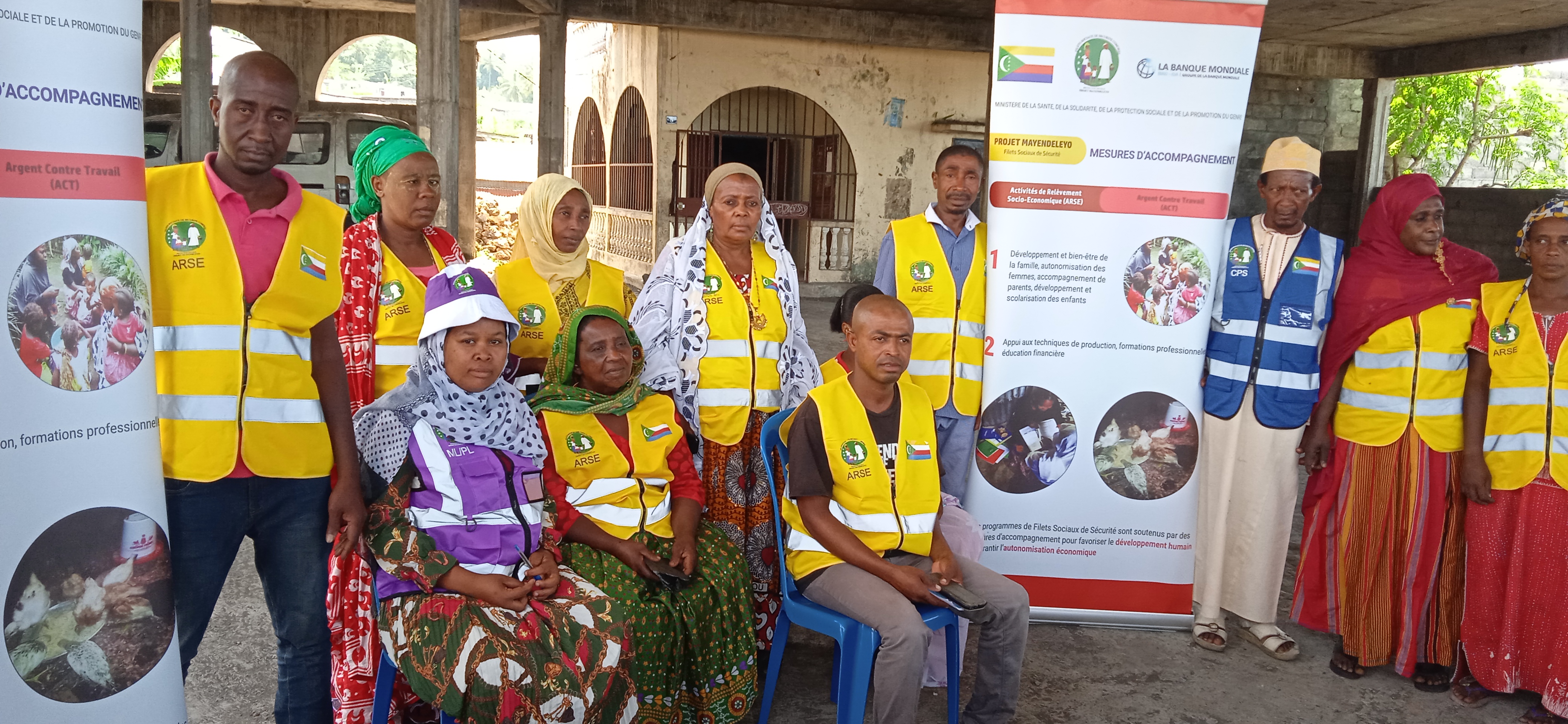

**Contexte** Le Projet de Filets Sociaux de Sécurité (PFSS) aux Comores vise globalement à augmenter l'accès aux services de filets sociaux productifs et de nutrition dans les communautés les plus pauvres et celles touchées par les catastrophes naturelles. Ce financement sous forme de don a été offert par la Banque mondiale. L'objectif est de renforcer les activités de relèvement et de redressement socioéconomique pour aider les ménages touchés par le cyclone Kenneth aux Comores. Dans le cadre de l'exécution du Contrat N CCO/38/PFSS/21/NGZ, du 15/03/2021, l'Unité de gestion du projet PFSS à travers la Direction Régionale de l'UGP a confié à l'ONG/Consultant AIDE l'exécution des activités de relèvement socio-économique des ménages bénéficiaires dans l'île de NGAZIDJA, et plus précisément sur la zone d'intervention prioritaire 6. De ce fait, l'ONG A.I.D.E est responsabilisée d'accompagner, d'encadrer et de suivre techniquement les différentes activités de 901 ménages se trouvant dans ladite zone du sud de l'île de Ngazidja. Elle se subdivise en deux sous-zones en fonction de la position géographique: - La sous-zone Haute dont les villages (Nkourani, Famar, Ntsinimoipanga, Nioumamilima). - La sous-zone moyenne (Domoni, Dzoidjou). **Zone d'intervention prioritaire 6 :** | ILE | REGION | COMMUNES | VILLAGES | BÉNÉFICIAIRES | |-------------|----------|---------------|------------------|---------------| | NIOUMANGAMA | DOMONI | | | 83 | | NIOUMANGAMA | DZOIDJOU | | | 65 | | NGAZIDJA | MBADJINI | NIOUMANGAMA | FAMARE | 35 | | NGAZIDJA | PIMBA | NIOUMAMILIMA | | 198 | | NIOUMANGAMA | | NKOURANI YA SIMA | | |
 Francais
Francais  Anglais
Anglais 